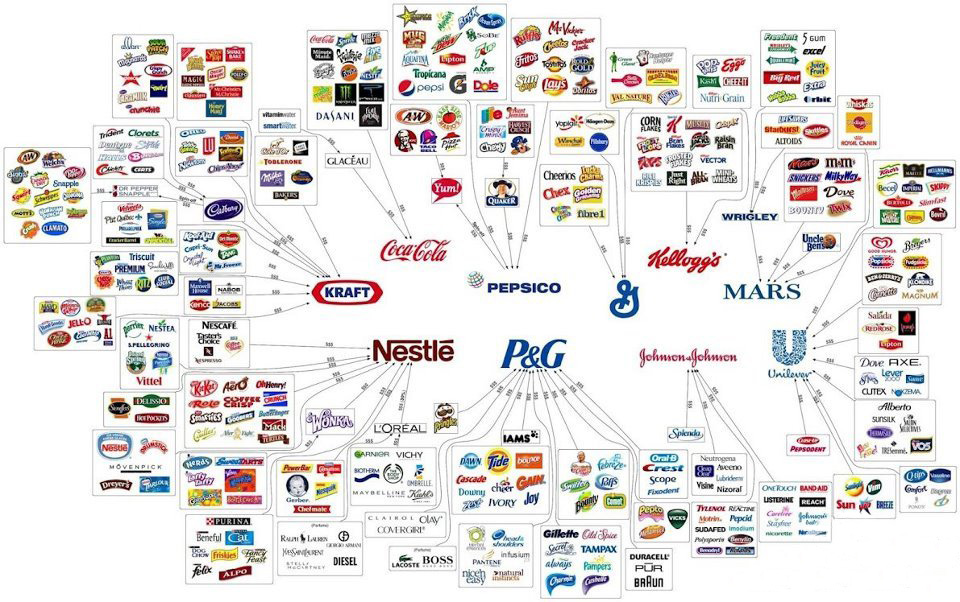B2B Branding Dimensions
<slideshow style="nobleprog" headingmark="。" incmark="…" scaled="true" font="Trebuchet MS" >
- title
- B2B Branding Dimensions
- author
- Bernard Szlachta (NobleProg Ltd)
</slideshow>
Tell the difference 。
"if everything looks the same, brand makes a difference"
Brand Equity 。
- Perceived quality
- Name awareness
- Brand association
- Brand loyalty
1. Name awareness: Did you hear about the barnds * BEKO 10% * SAMUNSG 70%
2. Precieved quality: Product of which brand has better quality? * BEKO 10% * SAMUNSG 50%
3. What do you image (what comes to your mind) when you hear
Samsung * big screens, controlable, relaible
BEKO * a washingmachine in my partents plce * happy
4. Loyalty: How likely you are going to buy a product from: Samsung: 80% BEKO: 30%
Brand Strategy - what is involved 。
- Choice of brand architectures
- from Branded House

- to House of Brands (brand portfolio)
- Choice of brand hierarchy
Microsoft
Microsoft Windows
Windows XP
Windows 7 Premium
Windows 8 Home
Microsoft Office
Professional
Home
Apple
Mac
iMac
Macbook
Profession
Air
IPad
- Choice of distinctive brand elements
- Name
- Logo
- Slogan
Brand Strategy - musts。
- Must be consistent
- consistent impression
- consistent with offering
- consistent with corporate strategy and values
- Control touch-points
- PR/Advertising
- Customer reviews
- Proposals
- Packaging
- Customer Service
...
Strategic Branding Options (dimensions) 。
- Brand width
- number of product sold under one brand
- Individual brands (House of Brands, P&G)
- Family brands (Buick, Rolls-Royce etc...)
- Corporate brands (Oracle)
- Brand Depth
- geographical range: local to international
- Brand Length
- positioning (mass market to luxurious)
Exercises 。
- Assign dimensions to the brand below
- IBM
- Ariel
- Samsung
- Swarovski
- ThinkPad
- Isoflex
- Dove
Brand Hierarchy 。
- IBM
- ThinkPad
- ThinkPad X140
- ThinkPad X140e
- ThinkPad X140
- ThinkPad
Corporate Brands 。
- IBM, Siemens, Oracle, Microsoft, ...
- High Risk
- Low cost
- Hard to focus and be consistent (e.g. cheaper or more premium services under one brand)
- Limits offering market/segment
- Hard to sell part of the offering
Family Brand 。
- Medium Risk
- More expensive
- Consistency within family (e.g. Think Pad)
Individual Brand 。
- Medium low
- Very expensive
- Highly consistent
Exercise 。
Create a branding strategy for your product, include:
- three dimensions (architecture)
- hierarchy
- estimate risks, cost and consistency
Brand Position 。
- Luxury Brand
- Premium Brand
- Standard/Classic Brand
- Essential/Economy Brand
Brand Geographical Coverage 。
- Multi-domestic Brand Strategy
- e.g. lawyer services in each states in the US
- National Brands
- can be well potion
- use local language, wording
- International
- harder to find
- must work in the countries targeted (e.g. English speaking countries)
- Global brand
- standardized by may be localized
- expensive to develop
- Transnational
- limited wording
- works everywhere (the same message, advertising, etc...)
Brand Elements 。
Visual Identity
- Name
- Logo
- Slogan/Tagline/Strap-line
Brand Story
Visual Identity Attributes 。
- Available (domain, registered trademark)
- Memorable
- Protectable
- Future-Oriented
- Positive
- Transferable to other languages and cultures
Brand Identity 。
- Actual
- Conceived
- Desired
- Ideal
- Communicated
Brand Name 。
- Name of founders (Dell, HP, Siemens ...)
- Descriptive (British Airways, Deutsche Telekom...)
- Acronyms (IBM, BASF, LG, EADS)
- Fabricated names (Accenture, NobleProg, Xerox)
- Metaphors (Oracle, Apple)
Slogan 。
- Life's Good
- The World's Local Training Provider
- Invent (HP)
Brand Story 。
- Legend
- Michelin
Exercises
Design your brand elements
Brand Building Tools 。
- Personal Selling (friends, family)
- Direct Marketing
- PR
- Shows, Fairs
- Advertising
- Sponsoring
Brand Evaluation 。
- Research - brand awareness
- Financial - how much the brand is worth as an asset
- ROI
Combining Brands 。
- Hierarchy of Brands
- Co-Branding
- Ingredient Branding (Lenovo, Intel, Microsoft or Shimano)
- Joint Ventures, partnerships, takeover (Sony-Ericsson, Goldman Sachs, Ebay/Paypal)
- Ingredient should capture an essential part of the end product
- Ideally if brand is recategorized by two distinct number of people (Fujitsu-Siemens)
Exercise
1. Discuss possibility of co-branding 2. Do the groups who know two brands overlap?
Inbrands types 。
- Components Materials (Nylon, Lycra, etc...)
- Component Parts (Intel, Shimano)
Pull vs Push 。
- Pull - marketing towards consumer -(Intel)
- Push - marketing towards manufacturer - (Oracle)
- Exercise
Develop both strategic and compare cost/efficiency of them
Alternative Brand Bulding 。
- Sponsored Blogs
- Viral Marketing
